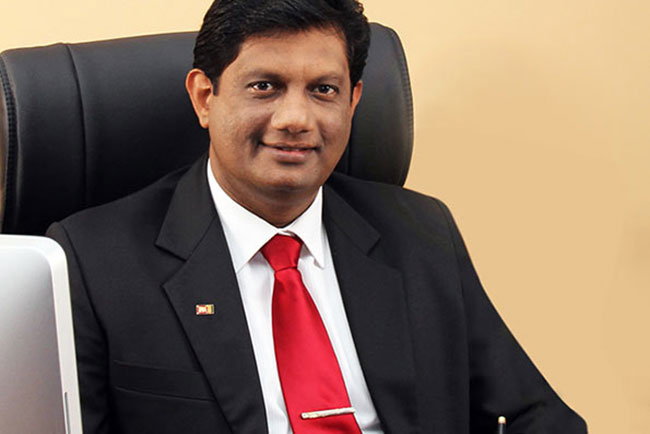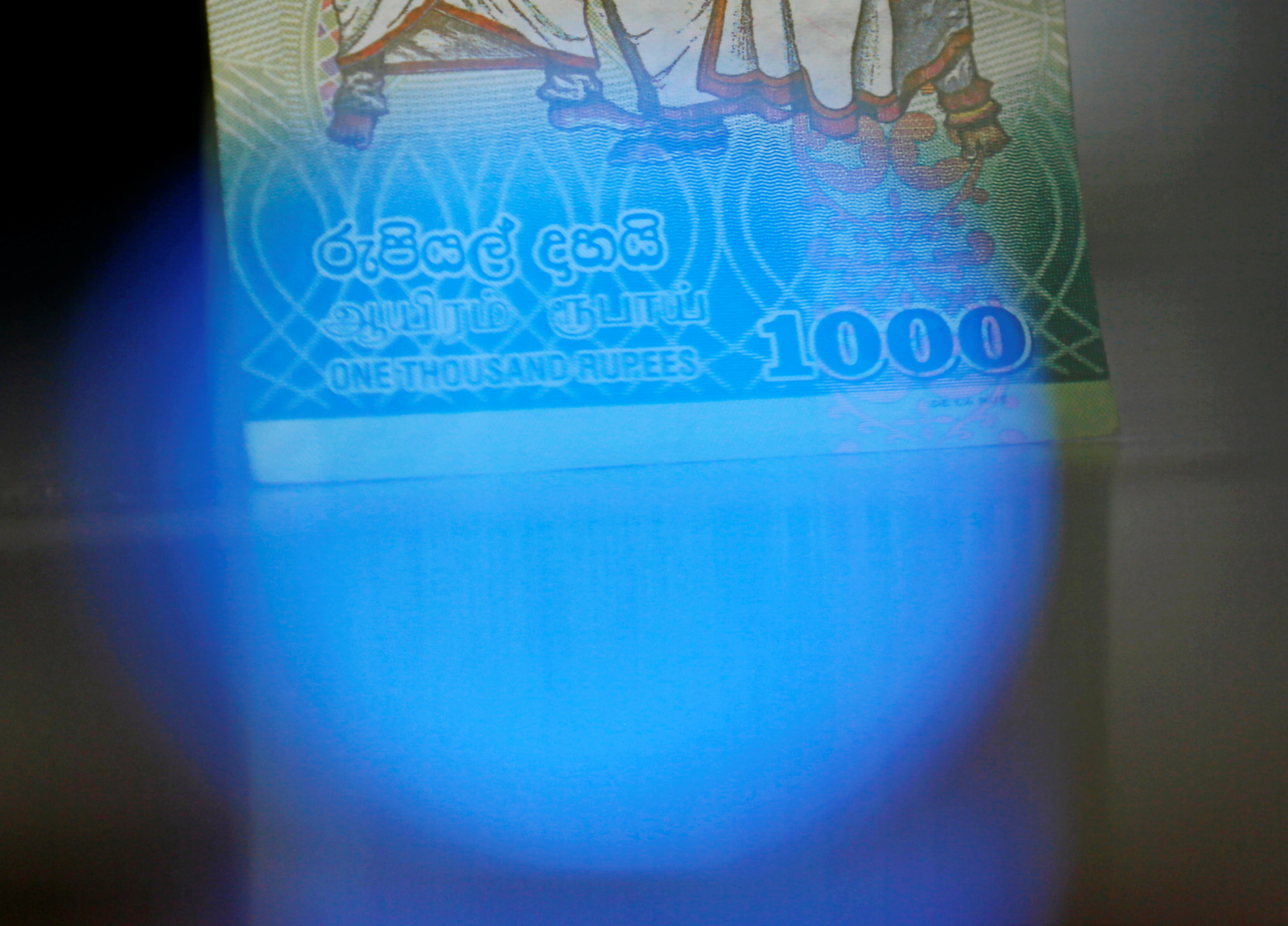Govt. in a bind over massive salary and pension bill: Revenue dwindles amidst pandemic
2021/08/06

By Shamindra Ferdinando
State Minister Dr Nalaka Godahewa says the country is in a bind due to dwindling revenue in the face of annual state sector salary and pension bill reaching a staggering Rs 1.2 trillion.
Dr Godahewa, who holds Urban Development, Waste Disposal and Community Cleanliness portfolios, is of the view that the issue at hand should receive the attention of all political parties represented in Parliament.
The Viyathmaga pioneer, Godahewa said so when The Island sought a clarification as regards his admission at a recent event at the National Housing Development Authority (NHDA) that the government was left with Rs 200 bn after the allocation of Rs 1.2 bn for the state sector salaries and pensions. The event was held to welcome those who had been recruited to the public sector.
The declaration comes in the wake of COPA (Committee on Public Accounts) faulting tax collection mechanism comprising Sri Lanka Customs, Inland Revenue and Excise Department for failing in their primary task. The annual income has fallen to just over 9 per cent of the GDP (Gross Domestic Product) according to the Central Bank.
The State Minister said: “There are over 1.4 mn public sector workers. There is a large number of pensioners. Annually, we need about Rs 1.2 trillion to pay salaries and pensions. In 2020, our annual income was Rs 1.4 trillion. We are left with Rs 200 bn to provide health services, education, transport et al.”
Dr. Godahewa explained the government had no option but to obtain loans to manage the economy under extremely difficult situations.
The Gampaha District lawmaker questioned the responsibility on the part of the public sector as the country struggled to cope up with the daunting challenges caused by the raging Covid-19 epidemic. He pointed out that the public sector salaries and pensions had been fully paid in spite of severe difficulties whereas the private sector had imposed unilateral salary cuts.
During his address at the NHDA, State Minister Godahewa made reference to honest as well as corrupt public sector officers and those who neglected their responsibilities. Welcoming those who had newly joined the public service, Dr Godahewa urged them to join the genuine lot.
The State Minister said that a few irresponsible individuals shouldn’t be allowed to tarnish the image of the entire public sector.
Dr Godahewa admitted that the government too was responsible to see whether the public sector addresses the requirements of those who needed their services.
The national economy had suffered a severe setback due to the total disruption of the tourism trade that brought as much as USD 5 bn annually, he said. The State Minister explained the crippling impact the disruption of tourism was having on the national economy at an event at Walapone where he inaugurated a major construction project. The State Minister emphasized the need to kick start tourism once the ongoing vaccination drive was brought to a successful conclusion by Sept-Oct 2021.
The SLPP is under heavy fire for depriving the Treasury of over Rs 500 bn at the onset of the incumbent administration. The SJB both in and outside parliament has alleged that the Treasury lost well over Rs. 500 bn due to a controversial decision to do away with a range of taxes, including PAYE (Pay As You Earn), NBT (Nation Building Tax), Withholding tax, Capital Gains tax imposed on the Colombo Stock Exchange, Bank Debit tax and unprecedented reduction of VAT (Value Added Tax). The SJB said that the 15% VAT and the 2% NBT which amounted to 17% imposed on all goods and services were unified and reduced to 8%, effective from the first of December 2019.
SJB senior Mujibur Rahman said that the decision was taken at the first cabinet meeting of the incumbent government held on Nov 27, 2019.
Analysis: Debt-hobbled Sri Lanka risks running out of options
Tom Arnold Marc Jones
August 3, 2021

LONDON, Aug 3 (Reuters) – Sri Lanka paid a $1 billion bond last week, but the alarming state of its finances suggests it may have been just another step towards its first sovereign default.
All the tell-tale crisis signs are there: bonds at nearly half their face value, debt-to-GDP levels above 100%, over 80% of government revenues being spent on interest payments alone and barely enough reserves to cover a few months of spending.
Chances of the island nation soldiering on alone look slim, especially with COVID-19 keeping the tourism industry on its knees and limiting the remittances expats are sending back from overseas.
Reflecting the gravity of its plight, Colombo’s dollar-denominated government bonds are among the most distressed in the emerging market universe.
Yet last week’s bond payment underscored the strong desire of the government to honour its debt and avoid the ignominy of the first sovereign default.
It has also brought it some breathing room – the next major payment is not until January when it must find $500 million.
But that is followed by a more hefty $1 billion in July and another $1 billion before the end of 2023. On top of an eyewatering fiscal deficit estimated to be around 11%, it could easily run out of rope.
“We always felt this was potentially heading for a default,” Axa Investment Managers’ Sailesh Lad said. “And in the next 12, 18, 24 months, if nothing changes, we think that is probably going to be the case.”
Most investors see an IMF programme as the only route out of trouble, but the likelihood it will require painful spending cuts means the government remains reluctant for now.
Instead, it appears to be favouring a muddle-through approach. It is leaning on foreign exchange swaps with China and India – which are both vying for influence in Sri Lanka – as well as banking on an upcoming $800 million injection of IMF COVID crisis money. read more
In comments reported by local media last week, State Minister of Money and Capital Markets Ajith Nivard Cabraal said Sri Lanka would make repayments via careful management of its existing reserves, as well as expected inflows.
Cabraal also said that the drop in reserves, which has seen them halve to under $4 billion in the last 12 months, was temporary. He expects inflows of $2.65 billion over the next three months, in addition to a $1.5 billion currency swap with China, as well as the rollover of loans maturing in the rest of 2021.
Analysts are unconvinced, however.
“We see the forecasted rise in reserves as overly optimistic,” said Esther Yong, Asia fixed income research at Julius Baer. “The current measures undertaken are short-term in nature and not a panacea for its weak debt sustainability and external position.”
There’s also uncertainty about what strings might be attached to any swap deals and whether flows will materialise at all.
With its strategic geographic location and one of the deepest ports in the world, Sri Lanka has been an integral part of China’s Belt and Road plan, and Colombo hopes that will convince Beijing to provide more support.
“China can lend enough money for them to muddle through, but … are they willing to throw good money after bad?,” said Carlos de Sousa, a manager of emerging market debt portfolios at Vontobel Asset Management.
“My base case is no, especially because India doesn’t seem willing to play ball.”
An ominous sign for Sri Lanka is that the muddle-through approach is rarely a lasting fix in struggling emerging markets.
Goldman Sachs analysts point out that since 2010, only three of the 13 countries where bond ‘spreads’ spiked to distressed levels for several months managed to avoid a default.
And even if Sri Lanka does change tack and opt for an IMF help, the dire state of its finances mean a restructuring would almost certainly be required
“Mathematically, it is very hard for it to continue the way it is going,” Mikhail Volodchenko, a colleague of Lad’s at Axa, said. “For now it is plugging the hole and surviving.”
https://www.reuters.com/world/china/debt-hobbled-sri-lanka-risks-running-out-options-2021-08-03/

Leave a Reply
You must be logged in to post a comment.